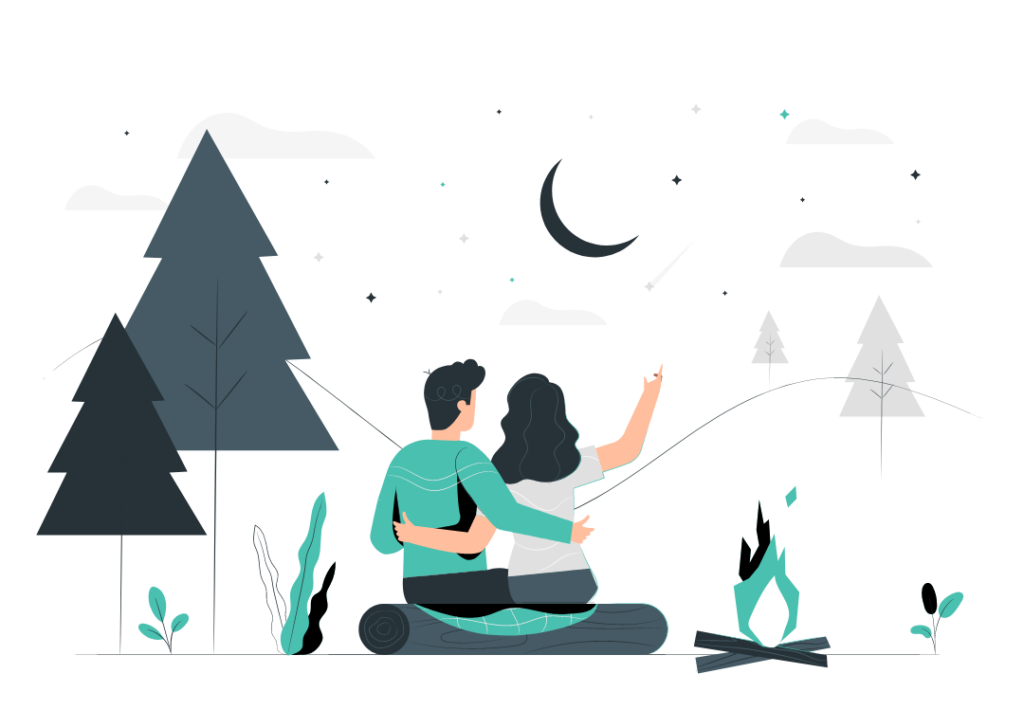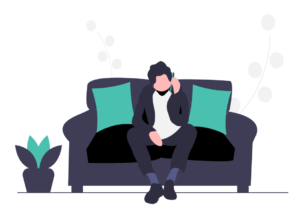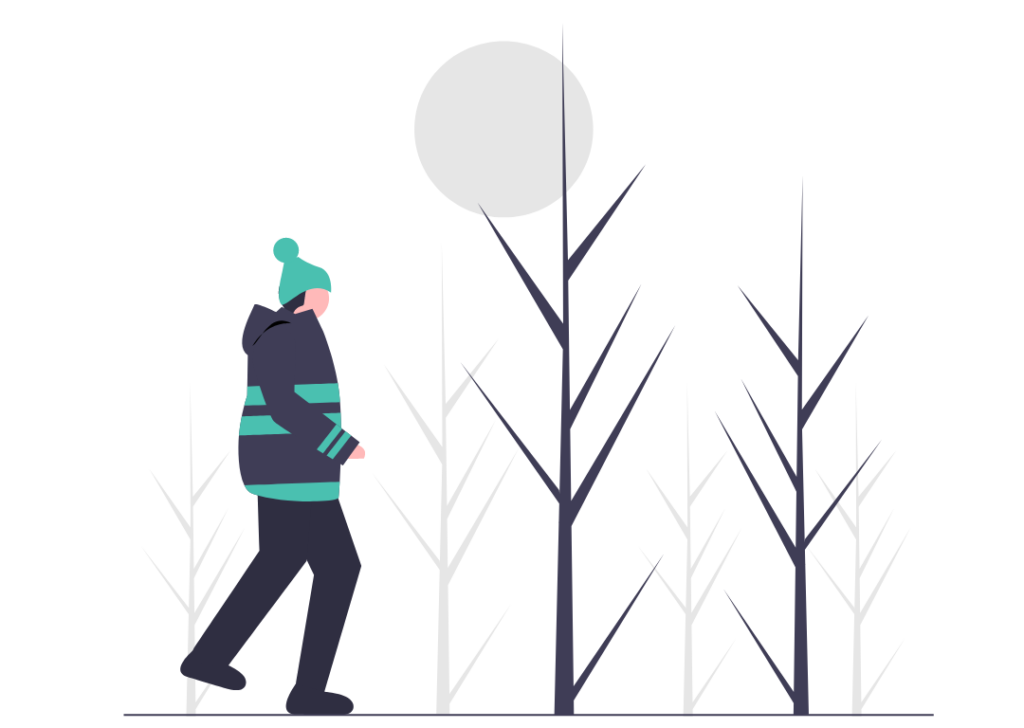
I Miss Who She Was And What We Did Together
Steve cared for his wife, who had Primary Lateral Sclerosis, for 15 years when she suddenly had a stroke. That was a wake-up call.

Chris was in his mid-50s when his mom was diagnosed with small-cell carcinoma and learned that she had limited time left to live. Within 8 days, he moved from Oregon to Southern California to care for her. He reflects on the physical, spiritual, and emotional toll of being a caregiver, and how he came to rely on the hospice team and those around him. This is Chris’ story.
As told to Open Caregiving and lightly edited to enhance readability while preserving the author’s voice.
Hi, my name is Chris. I’m a 56-year-old man, part of the Baby Boomer generation, but I identify much younger. I was a caregiver for my mom until she passed recently.
Before becoming a caregiver, I was single, employed, and had a flexible schedule. I had also been clean and sober for over 5 years. My kids live near me and are my life.
After my mom passed, I really found no reason to stay sober and literally stayed drunk for three months. Slowly putting it together again. Also, I noticed in my family that substance abuse of one kind or another was a symptom of everyone who helped care for her.
I took care of my mom, who I loved and admired so much. She was the perfect mom. I moved in with her 8 days after she was diagnosed with small-cell carcinoma, which was aggressive in nature. She lived in Southern California, and I live in Oregon.
I realized early on that this would be a very short illness and that I was losing my mom. She lasted 72 days from diagnosis to passing.
Also, I needed to keep it together as I was her executor and her advance directive. The emotion and stress caused everyone to fall apart, but I had to keep it together.
Easily, the biggest surprise was how people responded to her sickness. So many people wanted to do things their way and were really, really upset about how this was affecting them.
My mom entered hospice, which meant she refused all care other than pain management. DNR (Do Not Resuscitate). No chemo. No radiation. No forced food, fluids, or IVs. Nothing to prolong life.
Many of her friends did not agree with her decision and wanted her to “fight”. Mom understood this and was very patient with them. Several times I either asked people to be respectful of her wishes or made it clear that the visit was over. Sometimes, their pleading could take on a very emotional tone. Other times a very knowledgeable, judging tone. It was exhausting. So much of all of this was brand new, and it was scary to be managing someone’s exit from this life. I was already terrified of screwing something up and this didn’t help.
We had other family members who wanted to direct a different course of treatment from what her doctor and hospice had set forth. They called other doctors and nurses, offered mom homeopathic remedies and tinctures without checking, and took liberty with directing treatment. We eventually asked them to leave after telling them repeatedly that they were not in charge and not following our current course of treatment.
I think it’s important for caregivers to support the patient, but also to support the person with the advance directive and the power of attorney. There are plenty of roles to play. If you are truly there to help you won’t mind a supporting part rather than a leading role.
No balance. I ignored myself and only thought of my mom, what she needed or wanted, and ensuring her wishes were being met. My sister and I were with her most days for 24 hours a day. My sister traveled from Australia, spent 14 days with mom, then 10 days at home. She made the trip 5 times.
We had a schedule and a log book where we recorded meds, changes in mood and behavior, etc. I highly recommend this. My sister would go to bed at 8pm. I would go to bed at 4am, after the last course of pain pills. Then she got up at 4am and I got up at 10am or 11am. Both of us covered the majority of the day.
When my sister went back to Australia, we had other family who would assist on the same schedule. This worked for a while, but some people who had helped just found it too difficult and couldn’t come back.
After that, I slept when my mom slept and sometimes when the pain was bad (11 on a scale of 1-10), I would sleep with her or on the floor next to her.
I relied heavily on the hospice team and followed their direction. They are AMAZING and made all the difference in mom’s quality at end of life.
Talking with people on Reddit or other people going through the same thing. Realize you’re not alone.
I’m an atheist, but the chaplain and priest brought Mom great comfort.
Be kind to yourself.
Do not be afraid to call the hospice, doctor, pharmacy, or 911. Many times I fretted over overreacting or “bothering” the professionals with minor questions. Today I would call immediately every time.
Honestly, less substance abuse. I wish I had been stronger afterward but, man; I was on empty physically, spiritually, and emotionally. For addiction this can be an easy time for relapse, and it was for me. Find support, find help, call someone. I didn’t do any of that and there was no way (for me) to get stronger physically, spiritually, emotionally when I was numb.
If there is a legal way, with your patient’s permission, to recoup some economic losses during this time, take advantage of it. Mom had a trust and both she and the state of California said it was fine for me to be compensated during this time. One family member felt this was inappropriate and that I shouldn’t get anything, that it was just wrong. Although it was fine with Mom, I declined the money to keep the peace. It was very difficult to maintain my house in Oregon with no income and I ended up about $5-6k in debt. Looking back, I would have taken it. My mom, sister, and stepbrother all approved, but I chose peace over family friction.
It was such an amazing honor to care for my mom and also very heartbreaking. Be prepared for that, particularly in hospice. My mom chose NOT to have any life extending measures, and caregivers should be prepared to honor that decision and understand how hard that will be at times. Honoring my mom’s wishes when it was against what I thought was best was the hardest thing.
I’m in therapy now. Get help if you need it. It really makes a huge difference.

Steve cared for his wife, who had Primary Lateral Sclerosis, for 15 years when she suddenly had a stroke. That was a wake-up call.

Sawyer was living with in Vermont his wife and two toddlers when his dad was diagnosed with lung cancer.

As the oldest child, Staci always knew she would become her father’s caregiver. But she was still surprised with what came next.